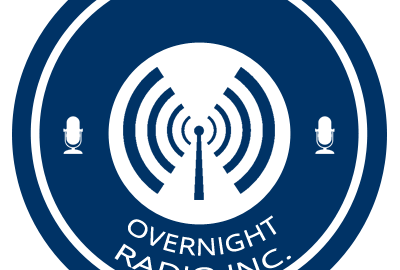Allo guv-nah! eez bee-you-tee-full tonight, eez it not? NINE!
All ridiculous versions of the real thing.
But an authentic accent? That’s what we need. We need a real Parisian to voice this ad to make it real…to connect with the client!
From my experience and perspective…this is a popular sentiment, but in almost 100 percent of the cases when it comes to Anglo-sphere accents (U.K. Australia, New Zealand, Canada and The United States), it is a fallacy.
You do not need an authentic accent for your spot. For a number of reasons.
First off, many authentic accents speaking English, cool as they may be, are hard for the native English speaker to understand. Even face to face. But at least face to face gives you the option of seeing mouth movements to correlate to what they may or may not be saying. So to take that one step further on the radio and remove the visual of the speakers mouth, makes it doubly hard for one to understand.
Secondly, what we think is an accent from a particular country, sometimes is actually far from the actual accent. We think in cartoons when we think accents. We think of broad strokes containing an entire country to one area of it.
When we need a French accent, we always think of a whispery, romantic, take-you-away-from-all-this seductive voice and read. Hardly the way anyone speaks in France at any given moment. BUT it IS the way any French person speaks in any English speaking persons mind.
When we think British, we think snobby, and the Queens English…slightly higher pitched and they are always putting someone or something down. Hardly the way anyone speaks in the United Kingdom as like anywhere else, there are a multitude of different dialects there. But to an English speaker from say North America (I am from Canada), that is exactly how they are speaking in our minds.
When say, a British person thinks of how an American speaks, it’s always with a southern drawl (as if everyone from the United States is from Texas) loud, and obnoxious. Hardly the way anyone in the United States talks at any given time. But, you guesses it, EXACTLY how they talk in a British persons mind.
There are accent issues with Canadians too, but I have yet to hear what they are aboot.
Regardless, the above scenarios in our minds (depending on where we are from) dictate what we believe an accent should sound like…and in turn what your listening audience does too.
I remember years ago doing a national spot for Outback Steakhouse at a studio in Toronto. A former employer of mine had invited me to try out for the Australian part, as they were doing an imitation Steve Irwin – the Crocodile Hunter type read to go with their ‘outback’ theme. He had heard me do a 10 second snippet of an Australian accent a few months before, and it stuck in his memory.
I was told after the session (which went well!) that I had beat out around 10 other candidates for the job, including 3 Australians. The Aussie’s clearly had a better grasp of what an authentic Australian accent sounded like, but they were missing one crucial aspect: the did not know what an Australian accent sounded like to Canadians.
Meaning, certain words had to be Canadian-ized to be fully understandable to our audience, who only had 30 seconds to hear, understand and get the joke before it was all over…PLUS they had to do it without SEEING the speaker.
Thus…the sad truth about accents in radio spots. If they are TOO authentic, then unfortunately and ironically, they are not good enough.
Which brings me to a point…voice talent should ALWAYS learn accents. It doesn’t matter which one, just learn one…you don’t need to learn them all, but if you can do one…you WILL get work from it. Simply because YOU know what that particular accent sounds like to your local ears. If you are from Scotland, learn an American accent. It may not get you work in the United States, but it could get you extra work in the U.K.
If you are from the United States, learn a generic British or French accent…you WILL get extra work from it. It may not pass the muster with a real European, but that’s not who you are trying to communicate with.
Remember that people in your communities, be it local, regional or national, want to do as little as work as possible when casting productions. If someone they already know and trust can do an accent that’s only needed say, 5 times a year, they will most definitely use you.
Let the producers, casting directors, creative writers know you can do this accent. They may not have a script for you to use it today, but they WILL have one (or 5) for you down the road.
g’day mate!

